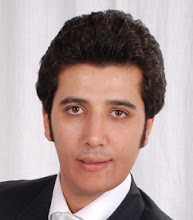Ayatollah Khamenei Brings God into Nuclear Debate
 While the head of the International Atomic Energy Agency Mohamed ElBaradei is scheduled to present his next report on Iran’s nuclear program to the Governing Board of the IAEA in three weeks, Iran’s supreme leader ayatollah Khamenei announced in a speech that “the Iranian people publicly declared that they would stand up for their rights and would protect them since God would reprimand them if they did otherwise.”
While the head of the International Atomic Energy Agency Mohamed ElBaradei is scheduled to present his next report on Iran’s nuclear program to the Governing Board of the IAEA in three weeks, Iran’s supreme leader ayatollah Khamenei announced in a speech that “the Iranian people publicly declared that they would stand up for their rights and would protect them since God would reprimand them if they did otherwise.” In the same light, the spokesperson for Iran’s Foreign Ministry Ali Hosseini, said yesterday that “the United States knows that Iran’s nuclear activities are peaceful.” Responding to reporters’ questions about the launch of “a new generation of centrifuges in Iran,” Hosseini said, “Such claims are usually brought up ahead of ElBaradei’s reports and when Iran and the Agency are making progress in their cooperation. We believe that these claims are brought up to impose political pressure on the legal and technical process at the Agency. If they have new information about Iran’s nuclear activities, as they did before, they can give it to Agency officials, so that they can present their findings after conducting their technical examination.”
The United States suspects Iran of pursuing a program to develop nuclear weapons. The Islamic Republic refutes this and has refused to comply with U.N. Security Council resolutions. Recently, in a rally of thousands to commemorate the 29th anniversary of the Islamic Revolution in 1979, president Ahmadinejad said, “Today, in our opinion, the nuclear issue is over. Everyone has recognized Iran’s innocence and the enemies can do nothing other than engage in paper work and propaganda.”









